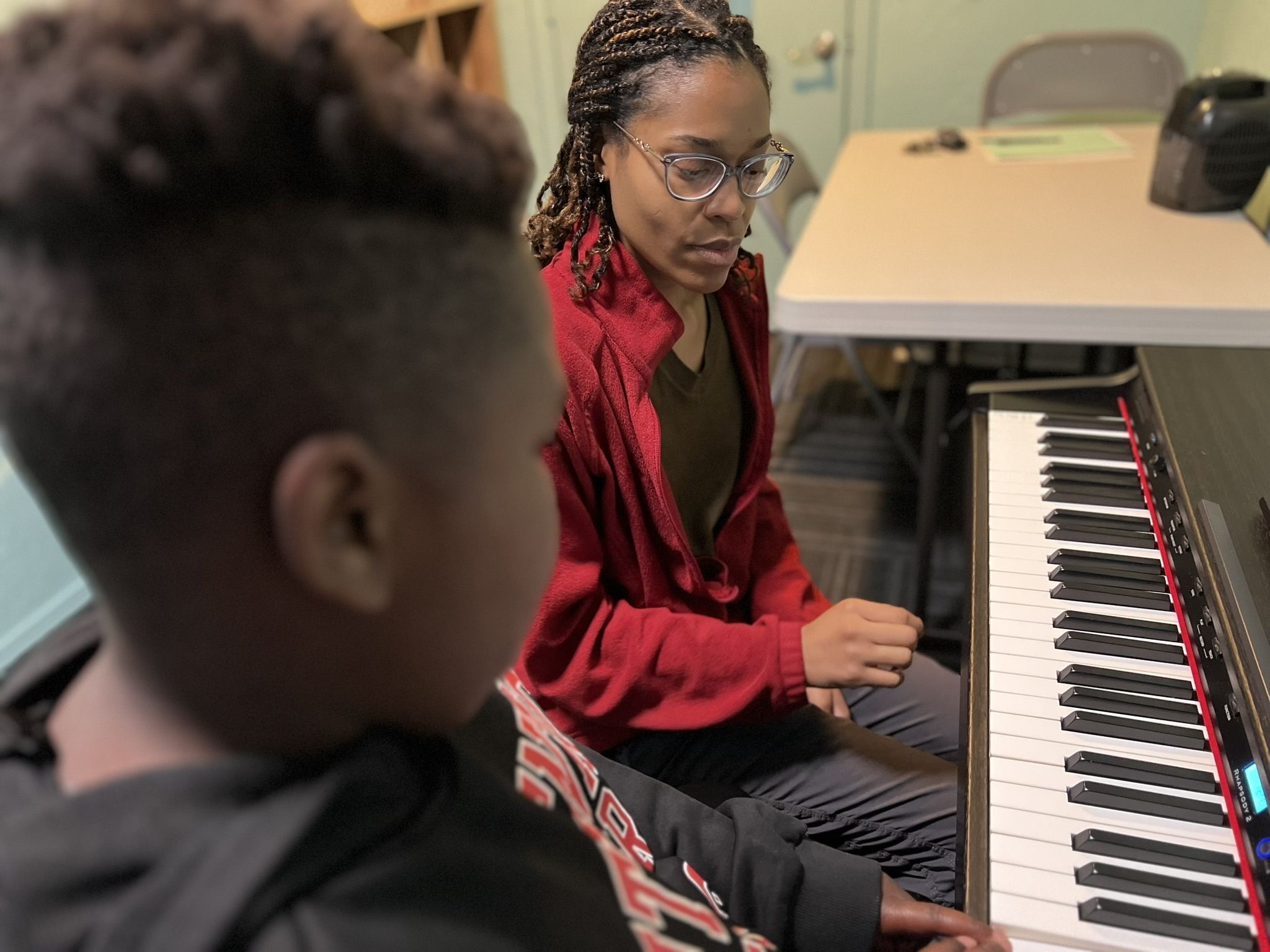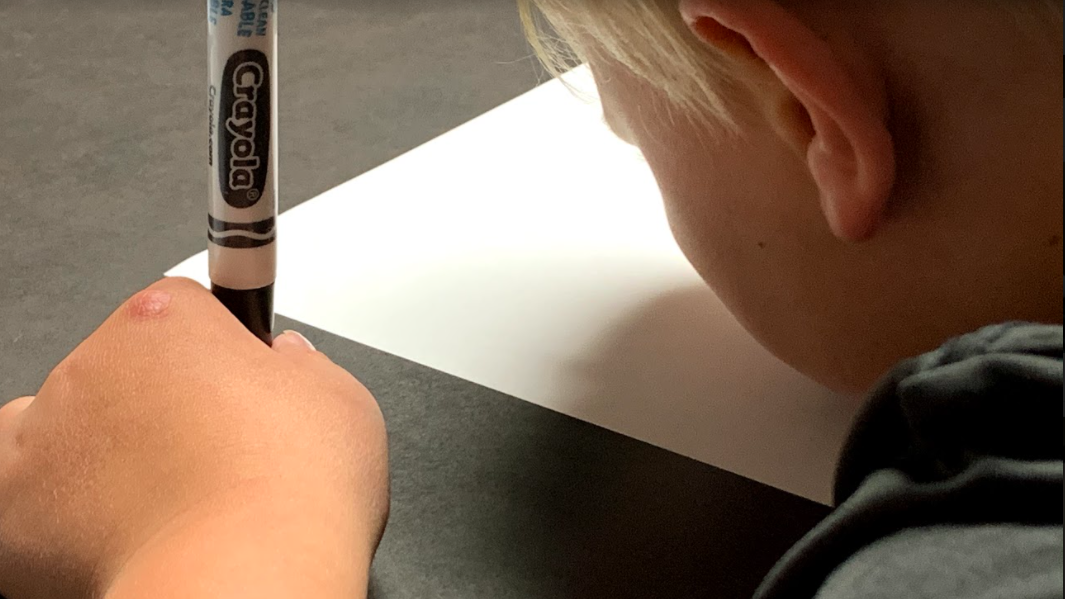
It’s a Thursday at the Genesis Project and down the hall you can hear notes on a piano. There’s no melody but one can hear a pattern. Inside a small room, Kaysea Scott works patiently with a boy playing colored keys in a row on the keyboard.
The boy is the third child on this day to participate in the same exercise, but the ways Scott must approach each boy is different. Each child’s therapeutic process is unique, and they respond in varying ways.
“It may be cliché but it’s true. No two cases are alike. You can have two people with the same age groups and demographic—even the same music preferences and disorders—but they are completely different,” Scott said.
One boy she saw had issues with self-confidence which required a very literal approach.
“He’s not the boy you could just say play any color you want. He needs a clear approach. Starting with the red key, then the green key. No two cases are alike.”
The boys come to Kaysea’s music therapy session with different challenges, and she is determined to find the way that will make a connection to help the boy learn something about himself, and ultimately, feel better.
Music therapy is a powerful scientific tool to help address histories of trauma and mistreatment. Music is processed and produced through a different pathway than verbal speech. Music can provide a different means to work on speech and language skills to help the boys address their mistreatment.
“With music therapy, along with other expressive arts, you get to engage in some type of activity other than sitting; it’s very tactile,” Scott said. “We know for a fact that engaging in musical processes causes both sides of the brain to talk to each other. Music participation engages both hemispheres simultaneously and crosses the corpus callosum. And when both sides of the brain are engaging, things can kind of start forming more seamlessly.”
According to the American Music Therapy Association, music therapy empowers children to self-reflect, foster social and communication skills, and identify how their thoughts and feelings influence behaviors and choices. Participating in the musical process teaches self-regulation and effective coping skills.
“Music is less intimidating,” Scott said. “Who doesn’t love to bang on something and talk about their day?”
The Genesis Project uses evidence-based measurements to track music therapy’s impact on the boys. The boys participate in individual and group music therapy sessions throughout the week. Kaysea is already seeing progress.
“Music can be less intimidating for some people. The number one thing that links people's disorders or problems with functioning, whether it's complex trauma or some other disorder, there's always a level of invalidation that's a direct result of the traumatic experience, or a perceived invalidation. To have something that validates you and contradicts that, that's huge.”
Scott saw that validation in the boy with low self-confidence. While finishing his session she pointed to a chart with faces illustrating different feelings.
“His eyes got big. He said I’m excited. I asked about what? He said, about everything. I asked, are you proud? He said, very proud. He played all four notes on the piano. It ended up happening. It’s one thing he can be proud of at the end of the day,” Scott said.
That’s success for a boy who’s been abused and neglected and is starting to play a new tune.
Our thanks go to the Kirkpatrick Family Fund and Blue Cross and Blue Shield of Oklahoma who provide funding for the program.

